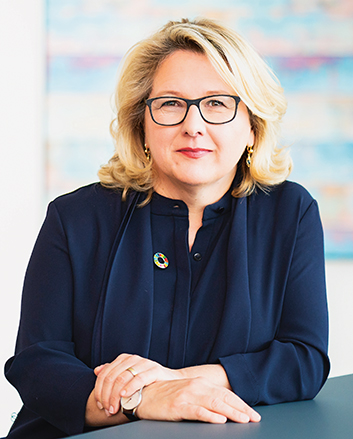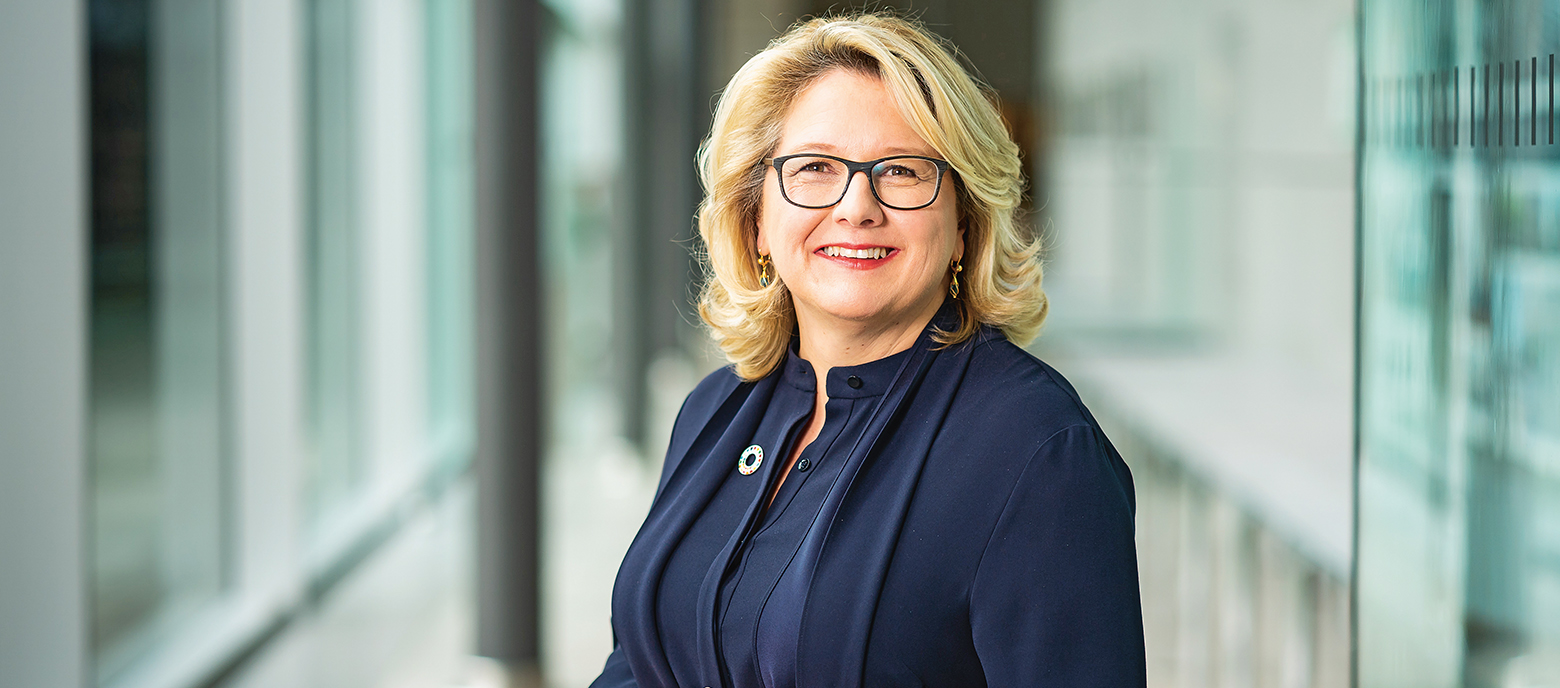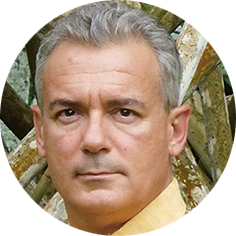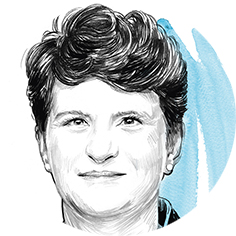Interview
‘Climate is at the heart of development policy’
Minister, what are your priorities as the new head of the German Development Ministry?
We are committed to respect-based policies that treat our partner countries in the Global South as equals. And we are addressing the key challenges we face globally – the climate crisis, overcoming poverty, achieving gender equality, global health care and crisis prevention. If we can make a difference in these areas, we will have achieved a lot – not only for developing countries, but also for Germany. In our interconnected world, crises in far-off countries have a real impact on us, too.
So in your new role, the climate continues to be a focus?
I have always maintained that every ministry needs to be a climate ministry. This is particularly true for development cooperation, because climate change hits the poorest countries hardest. They suffer most from the consequences of climate change and have fewer opportunities to adapt. That is why we put global climate policy, which comprises climate change mitigation and adaptation, at the heart of our development policy.
There is also an emphasis on gender equality. Why? And how can it be realised in developing countries?
I want to see a feminist development policy, because gender equality is a key human right. We want to achieve gender equality worldwide. That alone would be reason enough, but it is also clear that gender equality benefits societies as a whole. Feminist development policy means that we must always take care to specifically advance women’s interests in our projects, or at least to involve them on an equal basis. Countless studies indicate that there is less hunger and poverty, and greater stability, when women and men share responsibility equally.
‘Sustainable economic development is a key prerequisite for vital social and environmental change.’
The COVID-19 pandemic is posing major new challenges for poorer countries in particular: increased poverty and lower economic growth, to name just two elements of this. Can the Sustainable Development Goals (SDGs) still be achieved?
We’re working on it. We still need to pull together much more at international level though, in Europe, within the United Nations and in other international contexts. Multilateral cooperation, wherever possible, leads to better outcomes – in preventing pandemics, for instance, or meeting global challenges like climate change. Cooperation can generate trust, even when we are dealing with difficult partners. Take the 2030 Agenda for Sustainable Development, the Paris Agreement and the Addis Ababa Action Agenda on Financing for Development. We can only achieve the objectives set out in these agreements by working together rather than everyone doing their own thing.
So what does that mean for the transition to sustainable economies?
Sustainable economic development is a key prerequisite for vital social and environmental change. That is why we encourage private sector development. Private businesses are also essential partners when it comes to implementing the 2030 Agenda and the Paris Agreement. We need them to provide impetus and generate jobs in our partner countries.
In particular, we are working to strengthen the economic position of women in their capacity as entrepreneurs, employees, managers and consumers. To make our partner countries more resilient to future shocks, we are also supporting digital development and green economic development. I’m thinking here, for instance, about support for a socially acceptable transition to a more sustainable energy mix and establishing vaccine production in Africa. The pandemic has also clearly highlighted to us the fact that social safety nets are practically non-existent in poorer countries – that’s another challenge that we need to address together.

Today, more than half of the world’s population live in countries that are not democracies. What does that mean for German development cooperation?
When democratic rules are breached, there is a threat of war and destruction. This is what we are currently witnessing with shocking clarity. That is why democratisation and a commitment to good governance are more important than ever. They are also among the pillars that support values-based development policy. I am convinced that democratic structures foster sustainable economic development, a more equitable distribution of the fruits of economic growth, and the effective reduction of poverty. This is clearly evidenced by international studies. Even in countries that have recently developed along more autocratic lines, the promotion of democracy has had a clear and positive impact. Populations are demanding their rights more loudly than they used to.
Some people see Afghanistan, or more precisely the end of international engagement in Afghanistan, as the ‘fall from grace’ of development policy. Where do you stand on this?
We cannot describe it as the end of international engagement. Our decision to engage militarily in Afghanistan always went hand in hand with a responsibility at the civilian level, which the German Government will continue to uphold following the end of the military assignment, particularly in these difficult times for the country. More than half the population face hunger, including 13 million children. The education and health systems are close to collapse. The economy is in free fall. We have responded as an international community. Germany alone provided support worth EUR 600 million at the end of last year for humanitarian assistance, structural transitional aid and basic needs. Our engagement will continue to support people in future. But we will be working with non-government bodies, because we do not want to legitimise the Taliban regime. We will thus translate into practice the commitment set out in the Coalition Agreement: ‘Germany will continue its engagement for the people of Afghanistan.’
‘I want to see a feminist development policy, because gender equality is a key human right.’
We are increasingly hearing the term ‘international structural policy’ rather than development policy. What’s the difference?
International structural policy is a policy that fosters global justice for sustainable development. The changed context makes this absolutely essential. Globalisation has brought the world ever closer together. The challenges of our time, like climate change, can only be addressed if we work together at international level. For this, we need a binding framework, structures that we need to put in place to enable our partners to act independently as equals. After all, they are the real drivers of the required social and environmental transformation on the ground. The primary features of this policy are a global, democratic framework, a fair system of world trade and global finance, and, wherever possible, efforts to step up multilateralism. All of these also boost our resilience to deal with crises.
What role do you see for GIZ in this change?
Many other states envy us because we have GIZ, and I am delighted that we have such an effective implementing organisation. GIZ provides partners with very concrete support on the ground on our behalf. Over the last two years with the pandemic, GIZ has demonstrated impressively how swiftly and flexibly it can respond to new challenges, developing new approaches and instruments. The exceptional dedication and the high number of GIZ staff in our partner countries make a huge contribution towards shaping a modern development policy to deliver global justice. I am certain that GIZ will continue to work closely with BMZ to address the new development challenges with its usual drive.
akzente 1/2022


